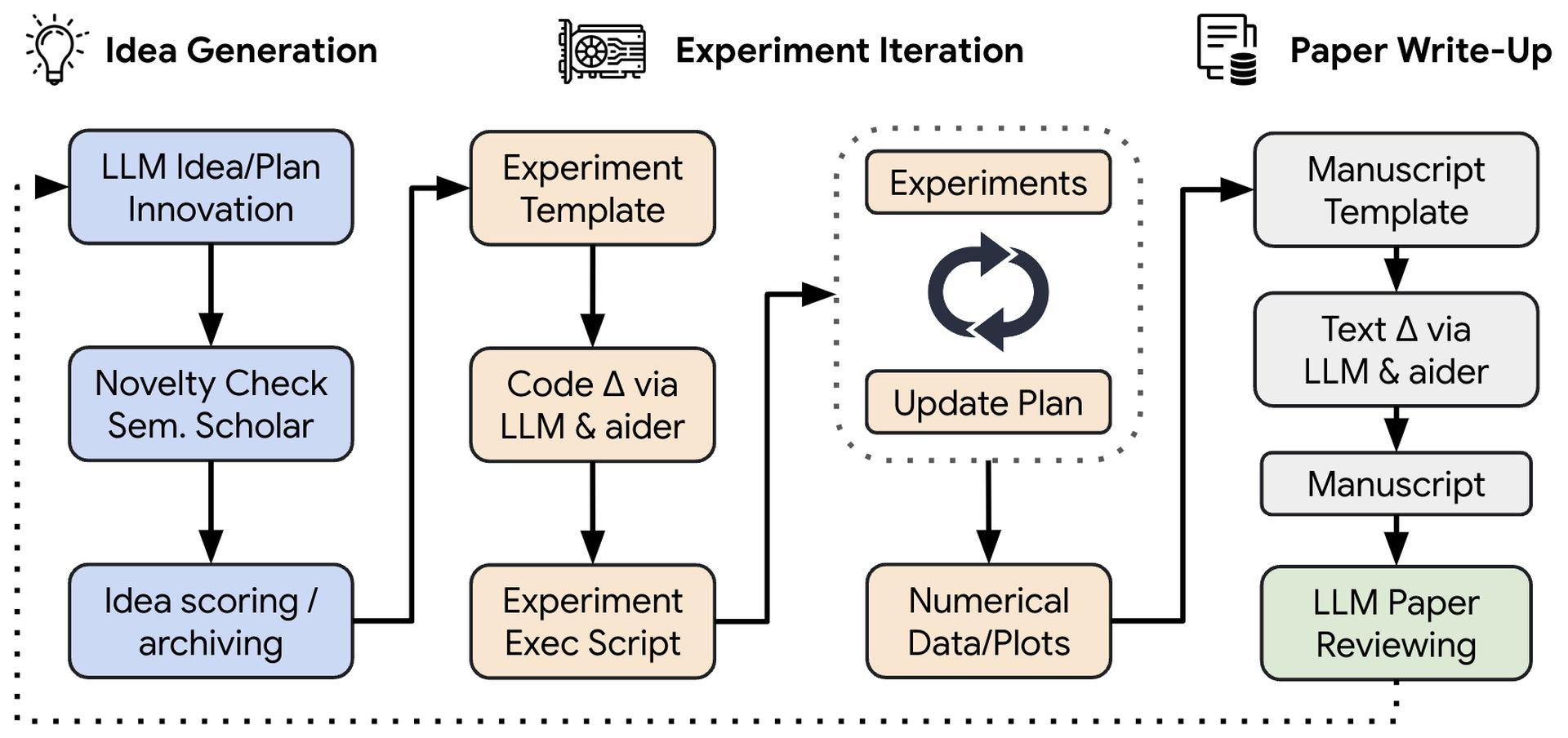Sakana AI has introduced something truly groundbreaking: The AI Scientist. Think of it as a research assistant that can come up with ideas, run experiments, write papers, and review the results—all on its own. The AI Scientist uses advanced technology to make sure research is original, thorough, and accurate. It helps scientists by designing experiments, gathering data, and even writing up the findings in a professional format.
So far, The AI Scientist has tackled projects in areas like machine learning, from improving how models handle data to making them more efficient. It’s also cost-effective, with each paper costing around $15, which could make high-quality research more accessible to many researchers and institutions. Sounds interesting? Here are all the details…
What is Sakana’s The AI Scientist?
The AI Scientist is an advanced system that autonomously handles research tasks from start to finish. This includes generating research ideas, running experiments, writing papers, and even reviewing the results.

The AI Scientist begins with a research topic or existing code. From this starting point, it brainstorms new ideas using advanced language models. It checks current research to make sure these ideas are original and valuable, so it doesn’t duplicate what’s already been done.
Once it has promising ideas, The AI Scientist designs and conducts experiments to test them. It sets up experiments, collects data, and creates charts and graphs to show the results. Everything from the setup to the results is carefully recorded, giving a clear picture of what was done and found.
After completing the experiments, The AI Scientist writes up the research findings. It drafts a paper in LaTeX, a format commonly used for scientific papers. The system also finds and cites other relevant studies to support its findings, ensuring that the paper is well-supported and follows academic standards.
Once the paper is written, The AI Scientist reviews it to check for quality and accuracy. This internal review process looks for mistakes and ensures that the paper clearly presents the research. The feedback helps improve the paper and guides future research, creating a cycle of continuous improvement.
What has Sakana AI’s The AI Scientist achieved so far?
The AI Scientist has already been applied to various areas within machine learning, such as:
- Diffusion Models: Investigating new methods for data handling. Here is this article’s abstract to understand The AI Scientist’s academic language:
“We explore how reinforcement learning (RL) can be applied to dynamically adjust the learning rate during transformer model training. The goal is to improve training efficiency and model performance by automatically tuning the learning rate based on training progress. This task is challenging because the training process is non-stationary, requiring a robust method to balance exploration and exploitation when adjusting the learning rate. We propose a Q-learning-based approach that uses validation loss and the current learning rate as state variables to optimize the learning rate. Our experiments with various datasets, including shakespeare_char, enwik8, and text8, show that RL-based learning rate adaptation results in faster convergence and better final performance compared to traditional methods.”
-The AI Scientist
- Language Modeling: Enhancing the efficiency of machine learning models.
- Grokking: Developing techniques to improve model generalization.

Cost
Each paper produced by The AI Scientist costs around $15, making it an affordable tool for scientific research. This cost efficiency could make advanced research more accessible to a wider range of researchers and institutions.
Challenges
The AI Scientist faces several challenges:
- Paper quality: There can be errors or incomplete interpretations in the papers it generates.
- Ethical issues: The use of AI in research raises questions about the role of human oversight and the implications of automated research.
For more details, Sakana AI has released a full scientific report and open-source code on their GitHub repository, providing insights into how The AI Scientist works and its potential impact on the research community.
Featured image credit: Eray Eliaçık/Bing






